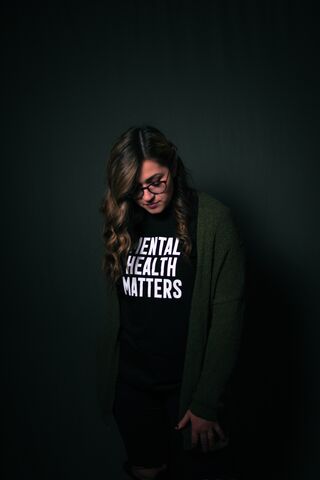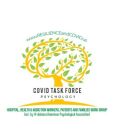Trauma
America Needs a Psychologist-in-Chief
To lead and guide human behavior, leaders need to understand human psychology.
Posted February 4, 2021 Reviewed by Ekua Hagan
"We are all much more simply human than otherwise, be we happy and successful, contented and detached, miserable and mentally disordered, or whatever."
Interpersonal psychoanalyst Harry Stack Sullivan, MD, wrote these words in 1947 while working with people who experienced chronic psychosis. He was able to look beyond the delusions and hallucinations to see the human being who lay behind the symptoms. Once Sullivan got to know his patients and was able to see the world as they did, he came to understand them better. Their otherwise incomprehensible behavior began to make sense and he was able to experience their humanness.
Early in the pandemic, it became clear to many of us that the psychological repercussions would be considerable. After all, we were becoming immersed in a world-wide health catastrophe—a medical natural disaster of global proportions certain to lay the groundwork for psychological trauma. Ten months later, the research bears this out.
COVID-19 Psychology Task Force
In early April, a number of trauma-informed psychologists, myself included, all members of the American Psychological Association, came together virtually to establish a COVID-19 Psychology Task Force, and I founded the Hospital, Healthcare, and Addiction Workers, Patients and Families working group.
The past year has been one of enormous psychological distress and trauma for our country and for the world. The results have been devastating, with increases in fear, isolation, and loneliness, depression, anxiety, couple and family stress, school disruptions, all in the context of nationwide political polarization and racial unrest.

There has been an abundance of losses, from the mundane to the catastrophic: loss of daily structure, ability to make plans, the boundary between work and home, health, jobs, school, social contact, sense of safety and security, human touch, fun.
And then there are the deaths. Deaths of people who contracted the virus, and deaths of people who avoided medical care due to fears of contracting the virus.
We are all suffering, including our helpers. Especially our helpers. EMTs, medical workers in Emergency Rooms and Intensive Care Units are truly on the front lines. Many of these first responders have endured massive trauma from confronting a degree of sickness and death they are unable to contain; from witnessing medical carnage they had never before experienced; and from the need to make painful decisions when placed in a position of determining who receives immediate medical attention and who does not. They have experienced the vicarious trauma of seeing their patients suffering and dying alone in the ICU, their families unable to be with them or to say goodbye.
Healthcare leaders also experience distress. Many carry enormous responsibility without adequate resources in terms of personnel and equipment to accomplish what they know needs to be accomplished. Nor do these leaders have the training to know how to respond appropriately to the distress of those whose well-being has been entrusted to them.
Dr. Patricia O’Gorman, an addiction and trauma specialist and co-chair of our working group sees an increase in child and teen suicide by intentional overdose stemming from the pandemic. She states, “People are drowning their pain in alcohol and drugs, resulting in greater addiction. They are lashing out at their children and partners.”
Consistent with this observation, Dr. Christina Rodriguez, a child psychologist on the Task Force, cites her research group’s bone-chilling finding that, since the pandemic, medical facilities have reported an increase in the severity of child maltreatment.
While more older people are dying from COVID, the CDC reports that younger people have higher rates of depression, anxiety, and suicide.
And then there is the grief. It is pervasive. Losses are everywhere and occurring at every level. Dr. Janet Plotkin-Bornstein, a psychologist, grief specialist, and part of our working group, had this to say about grief and the pandemic: “We are in a prolonged state of shared and profound grief as a nation, with the collective and urgent need to engage in rituals of mourning and remembrance for all those who have died, and for all the losses our hearts have borne.”
Trying to understand
In his inaugural address, President Biden, a man who clearly understands grief, stated, “To heal, we must remember. It’s hard sometimes to remember. That’s how we heal. It’s important to do that as a nation.”
Using masks and developing vaccines have held hope for many that they and their loved ones might be safe from the virus. Yet sizable numbers of people refuse one or both.
From a medical perspective, such refusal does not make sense, yet simple education about the medical facts only goes so far.
Circling back to Dr. Sullivan. What do we do when people behave in a way that baffles the medical doctors? Perhaps we can attempt to see things from their perspectives. Understanding the underlying meaning, conscious or unconscious, of wearing a mask or getting vaccinated may enable us to address these behaviors in more productive ways.
Drs. Traci Gardner and Jeremy Kohomban illuminate the deep conflict many Black Americans experience around the vaccine, feeling caught between fear of contracting the virus vs profound mistrust of a system they experience as unreliable and that perpetrated egregious trauma on this group of Americans.
Similarly, for those who eschew masks, we might wonder what wearing the mask represents to them: excessive government control, public admission of vulnerability, as just two of many possibilities.
My proposal:
- Integrate psychologists who understand mental health, medical trauma, and the deeper meaning of behavior, to work alongside medical doctors at local, state, and federal levels. This is particularly crucial now when medical and psychological issues are so clearly intertwined and when we anticipate psychological repercussions to last long past the medical crisis, itself.
- President Biden should appoint a Psychologist-in-Chief to address the psychological aspects of the pandemic, in addition to our country’s deep polarization, racial trauma, social class inequities, and other forms of injustice.
Only when we have a fuller understanding of the psychological, can we hope to have a country in which we are “all much more simply human than otherwise.”
References
Angelakis, I., Austin, J. L., & Gooding, P. (2020, August 5). Association of Childhood Maltreatment With Suicide Behaviors Among Young People. JAMA Network Open. https://jamanetwork.com/journals/jamanetworkopen/fullarticle/2769030
Green, E. L. (2021, January 24). Surge of Student Suicides Pushes Las Vegas Schools to Reopen. https://www.nytimes.com/2021/01/24/us/politics/student-suicides-nevada-coronavirus.html
Leeb RT, Bitsko RH, Radhakrishnan L, Martinez P, Njai R, Holland KM. (2020). Mental Health–Related Emergency Department Visits Among Children Aged <18 Years During the COVID-19 Pandemic — United States, January 1–October 17, 2020. MMWR Morb Mortal Wkly Rep. 69:1675–1680. DOI: http://dx.doi.org/10.15585/mmwr.mm6945a3external icon.
Pollard, M. S., Tucker, J. S., & Green, H. R., Jr. (2020, September 29). Changes in Adult Alcohol Use and Consequences During the COVID-19 Pandemic in the US. JAMA Network Open. https://jamanetwork.com/journals/jamanetworkopen/fullarticle/2770975
Rodriguez, C. M., Lee, S. J., Ward, K. P., & Pu, D. F. (2020). The perfect storm: Hidden risk of child maltreatment during the Covid-19 pandemic. Child Maltreatment. Online first: https://doi.org/10.1177/1077559520982066
Sullivan, H.S. (2013). The Interpersonal Theory of Psychiatry, Routledge, p. 18.
Tingley, K. (2021, January 25). Will the Pandemic Result in More Suicides? The New York Times. https://www.nytimes.com/2021/01/21/magazine/will-the-pandemic-result-in-more-suicides.html




